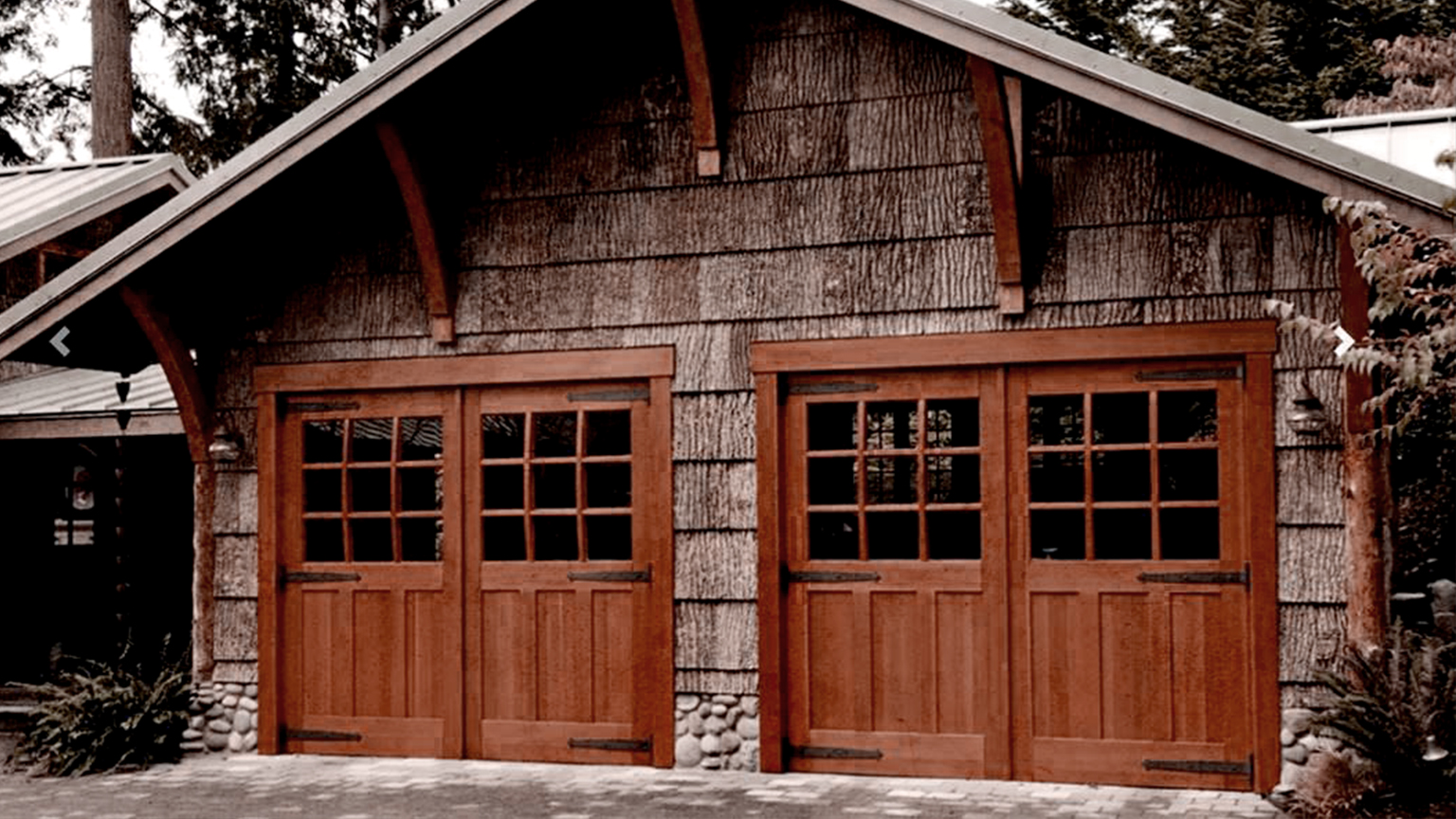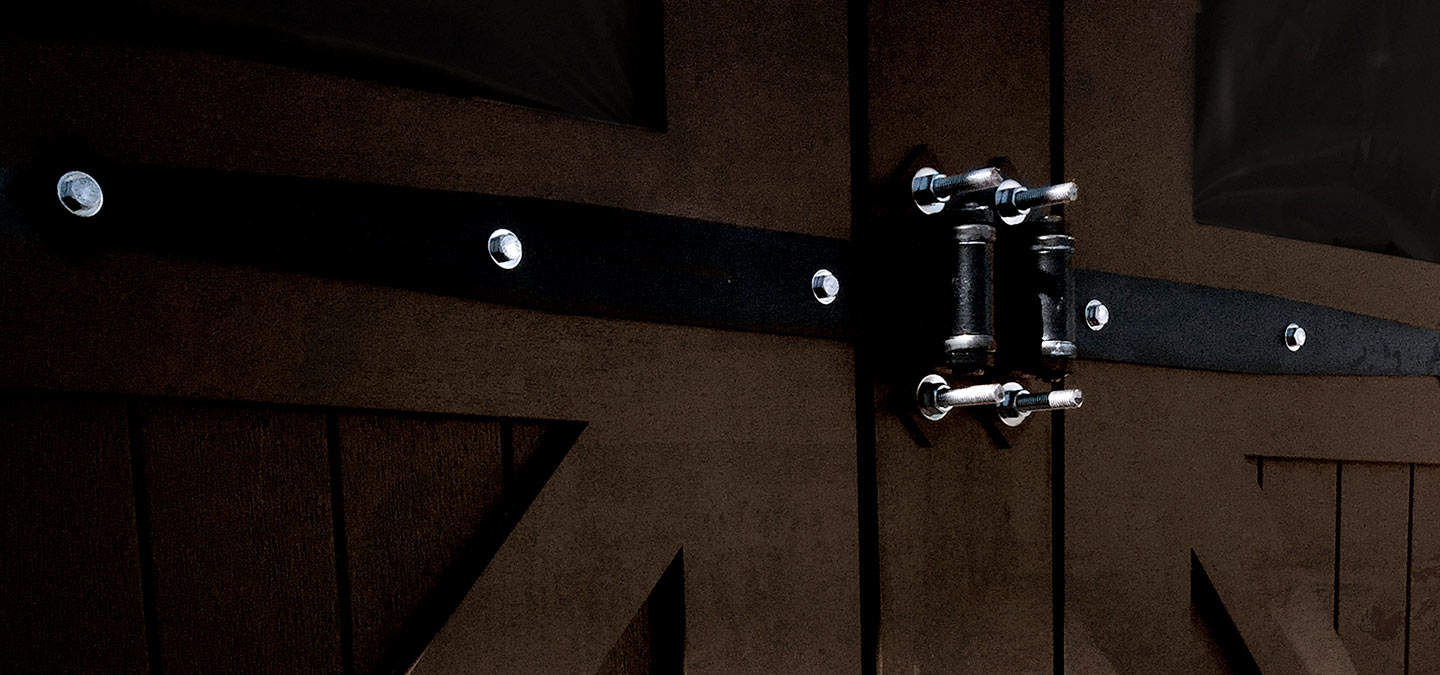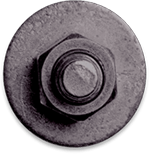Swinging doors are a practical and stylish addition to many homes and commercial spaces, offering ease of movement and aesthetic appeal. Anyone who has read our article on swinging vs. sliding doors knows that swinging doors offer advantages like convenient access, durability, and security.

However, the effortless swing and durability of these doors heavily rely on the hardware you choose. The right swinging door hardware not only ensures smooth operation but also contributes to the door’s longevity and safety.
Selecting the appropriate swinging door hardware can be daunting, given the myriad of options available and the technical considerations involved. As experts in high-quality door hardware, we have prepared this guide on the essential factors to consider to ensure you choose the right solution for your swinging door.
Swing Door Size
The size of a swinging door, including its width, height, thickness, and weight, is the fundamental starting point of your hardware selection process. Larger and heavier doors, like swinging garage doors, demand more robust and durable hardware to support their weight without straining or breaking.
For instance, such doors would benefit from our heavy-duty strap hinge hardware with thicknesses of ⅜ ″, or ½″, strong enough to support doors of over 400 lbs. Conversely, lighter doors might not need heavy-duty door hardware, offering more flexibility in design and material choices.
Frame or Jamb Construction
The construction of the frame or jamb is pivotal in determining the type of hardware that can be fitted. Different materials, whether wood, metal, or steel, come with distinct characteristics in terms of strength, flexibility, and the type of fasteners they can accommodate.
Understanding these properties will help you select hardware that aligns with the structural integrity of the frame or jamb. For instance, standard strap hinges would work well on doors mounted to metal, steel, or wood jamb frames. Heavy doors on weak frames could lead to structural damage over time.
Pintle Type and Location
Pintles are the pins or bolts on which the door swings. The type of pintle you choose depends on the door’s weight, size, and frequency of use. For instance, heavier doors require sturdier pintles for support.
The location of the pintle is also crucial. It must be positioned to balance the door correctly and ensure an even, smooth swing without undue stress on any part of the door or frame. Misaligned or inadequately chosen pintles can lead to doors that sag, stick, or don’t close properly, impacting both functionality and durability.
Frequency of Use
How often a door is used can significantly influence your hardware choices. Doors that see high traffic, like those in commercial spaces or busy entryways, require hardware that can withstand frequent use without degrading.
This includes choosing hinges and pintles made from hard-wearing materials and designs that can handle continuous movement. For instance, we recommend ball bearing hinges for frequently used swinging doors that see more than 20 daily operations.
Preferred Mounting Style
The preferred mounting type is an essential factor to consider, especially in the context of heavy-duty and decorative door hardware. This refers to how the hinges and other hardware are attached to the door and frame.
The choice of mounting type impacts both the door’s appearance and its functionality. Here are the various types of door mounting hardware and hinges you can consider depending on your preference:
Strap Hinge with Half-Butt Jamb Section
This mounting style combines the features of a strap hinge with a butt hinge design. It’s attached inside the doorframe, offering sufficient door clearance and a cleaner look. The pintle pin, located at the edge of the opening, allows the door to swing smoothly.
Full Surface Mount Strap Hinge with Jamb
These hinges are versatile, catering to both offset and non-offset pintle styles. Offsets are useful when you need the door to clear the doorway fully when opened by setting the pintle back on the face of the wall. Alternatively, pintles without offsets are mounted at the edge of the opening, directly on the frame, for a traditional hinge appearance.
Center Strap Hinges
These are specifically designed for slide-fold doors. They come with an offset in the hinge strap (typically between ¾” and 1”), which ensures enough clearance between the doors when closed. This style is ideal for applications where multiple folding doors need to operate smoothly in tandem.
Backplates
When mounting strap hinges to doors that are not reinforced, such as hollow metal doors, backplates become a protective layer. They distribute the force of the fasteners over a larger area of the door, preventing damage and enhancing its structural integrity. This style is particularly important for heavy doors or doors that undergo frequent use.
The Hinge’s Moment
The ‘moment’ in this context refers to the rotational force exerted on the hinge as the door swings. This is crucial because the hinges must be strong enough to handle the door’s weight and usage without failing or causing the door to sag.
To determine the appropriate hinge moment, you need to consider three main measurements:
● The weight of the swinging door, usually expressed in pounds
● Width of the swinging door, measured in feet
● Frame/jamb construction
To calculate the hinge moment, multiply the weight of the swing door by its width. This calculation (Weight × Width = Moment) gives a figure that represents the turning force exerted on the hinges. Once you have this moment calculation, you can consult with the hinge manufacturer for a recommendation.
Different hinges are designed to withstand different levels of moment. At RW Hardware, we can fabricate hinges to fit any need and guide you on the type and the number of hinges needed to support your door safely and effectively. Even if you have an industrial swinging door with a higher moment, we offer specialty door hardware that utilizes heavier gauge steel for better quality and durability.
Get Your Swinging Door Hardware From a Trusted Company
Selecting the right swinging door hardware requires careful consideration of numerous factors to ensure the longevity, safety, and aesthetic appeal of your door. With this comprehensive guide, you can make informed decisions, guaranteeing that your swinging doors function smoothly and stand the test of time.
When it’s time to select hardware for your industrial swinging door, outswing garage doors, or exterior swinging doors, make RW Hardware your top priority. We have a comprehensive and high-quality range of hardware like hinges and other accessories to suit your DIY or large-scale construction project.
From decorative door hardware that adds aesthetic charm to your space to heavy-duty door hardware designed for endurance and functionality, we cater to all your needs. Explore our online shop and select hardware that blends timeless craftsmanship, quality, and elegant design


